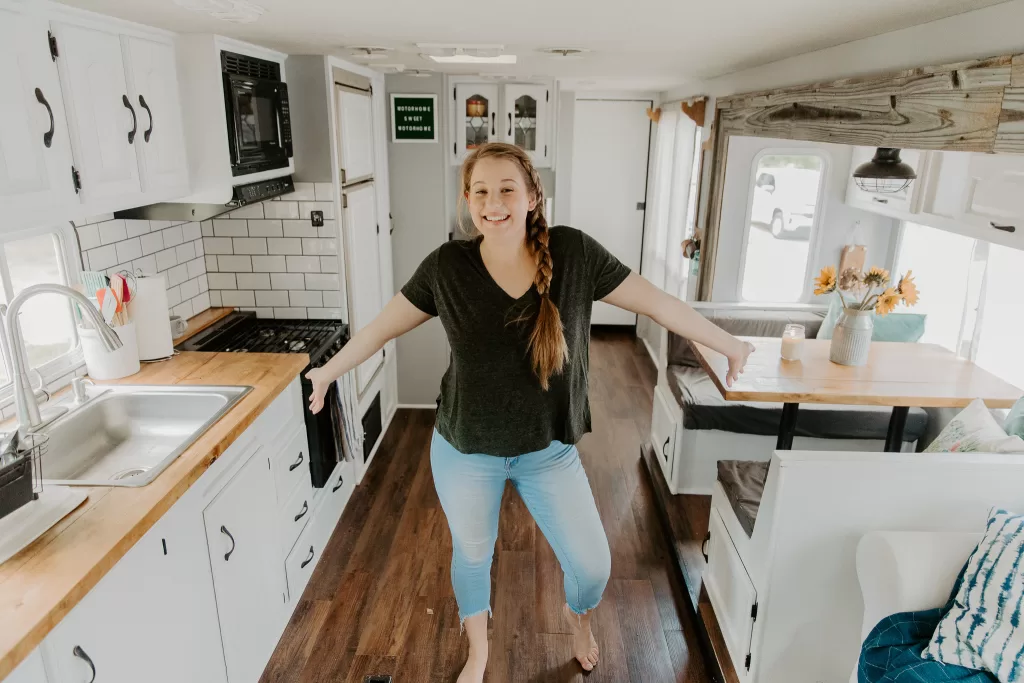
Living in an RV full-time is an adventure like no other, and after three years on the road, I can confidently say it’s been challenging at times, but also really fun! When my husband and I made the leap into RV life, we had no prior experience with RVs—just a dream of freedom and excitement and to live on the road and travel wherever we wanted whenever we wanted. We’ve learned a lot the hard way, but every bump in the road has taught us something. If you’re considering the RV lifestyle, don’t let inexperience hold you back! If we can do it, you can too! With that being said, there’s definitely a learning curve, and I’m here to help make your transition to RV life as smooth as I can! Here are 10 things I wish we’d known before starting this journey, so you can be better prepared for the ride.
1. Expect Lots of Set-Up and Tear-Down Time

Every time you move your RV or arrive at a new destination, there’s a fair amount of setup and tear-down involved. This process can be time-consuming and requires attention to detail.
Time and Patience: It may not seem like much, but when you’re moving frequently or transitioning from one campsite to another, the setup and tear-down time adds up. It’s easy to underestimate how much time you’ll spend doing this each day.
Arriving: Setting up camp means finding a flat, level space, connecting utilities (water, sewer, electricity), and ensuring everything inside is secure. You also have to open your awning and potentially open slides to expand your living space. When we travel from place to place, we have a lot of loose items that have to be put in the sink, shower, cabinets, etc. When we arrive to our new spot, we then have to put all of those loose items back out where they go.
Leveling: Ensuring your RV is level is crucial, as many appliances (like the fridge) rely on being level to work properly. There are leveling systems that are automated, but in many cases, it requires manually adjusting jacks and checking the bubble levels. Especially if you purchase an older rig like we did (which in my opinion are better made for full time RV life!)
Packing Up: When it’s time to leave, you’ll have to do everything in reverse from when you arrived. Disconnect all utilities, close up any slides, secure loose items inside, and double-check that everything is properly stowed. If you’re towing, hitching up the RV and ensuring the connection is secure is a whole extra step.
2. RV’s get really bad gas mileage.
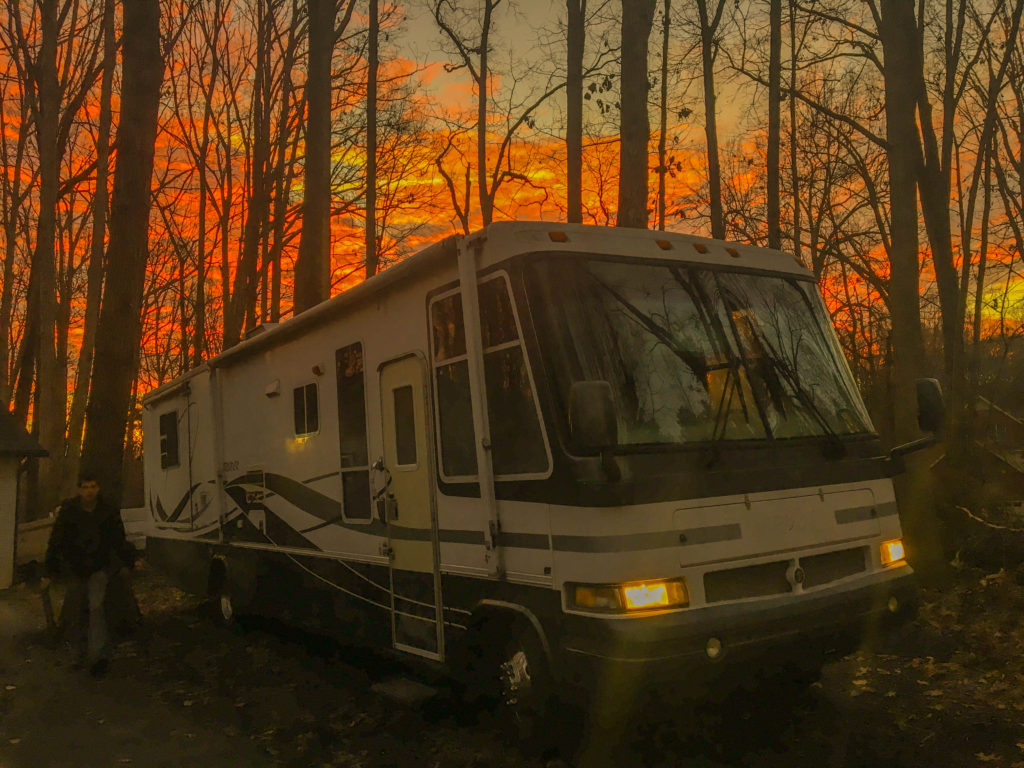
When we bought our RV, I knew motorhomes weren’t fuel-efficient, but I underestimated just how much of a gas guzzler our RV would be. It makes sense when you consider the weight—our Class A motorhome weighs thousands of pounds and also tows our car. However, the true cost didn’t hit me until our first trip.
Class A motorhomes typically get 6-8 miles per gallon. In fact, the cost of driving our motorhome across the country often rivals staying in upscale hotels. I originally envisioned spontaneous cross-country trips with our home on wheels, but the reality is that it can cost thousands of dollars just in fuel to get there and back.
After talking with other RV enthusiasts—owners of everything from fifth wheels to motorhomes to travel trailers—I’ve learned this is a common challenge. While some rigs have slightly better fuel efficiency, driving large RVs around the country is simply expensive. That’s why it’s so important to research fuel efficiency before buying an RV, especially if you plan to travel long distances.
Here’s how we manage the cost: We limit long trips to occasions where the destination or a work opportunity offsets the fuel expense. While our RV lifestyle is incredible, we’ve learned to plan smarter to make it sustainable.
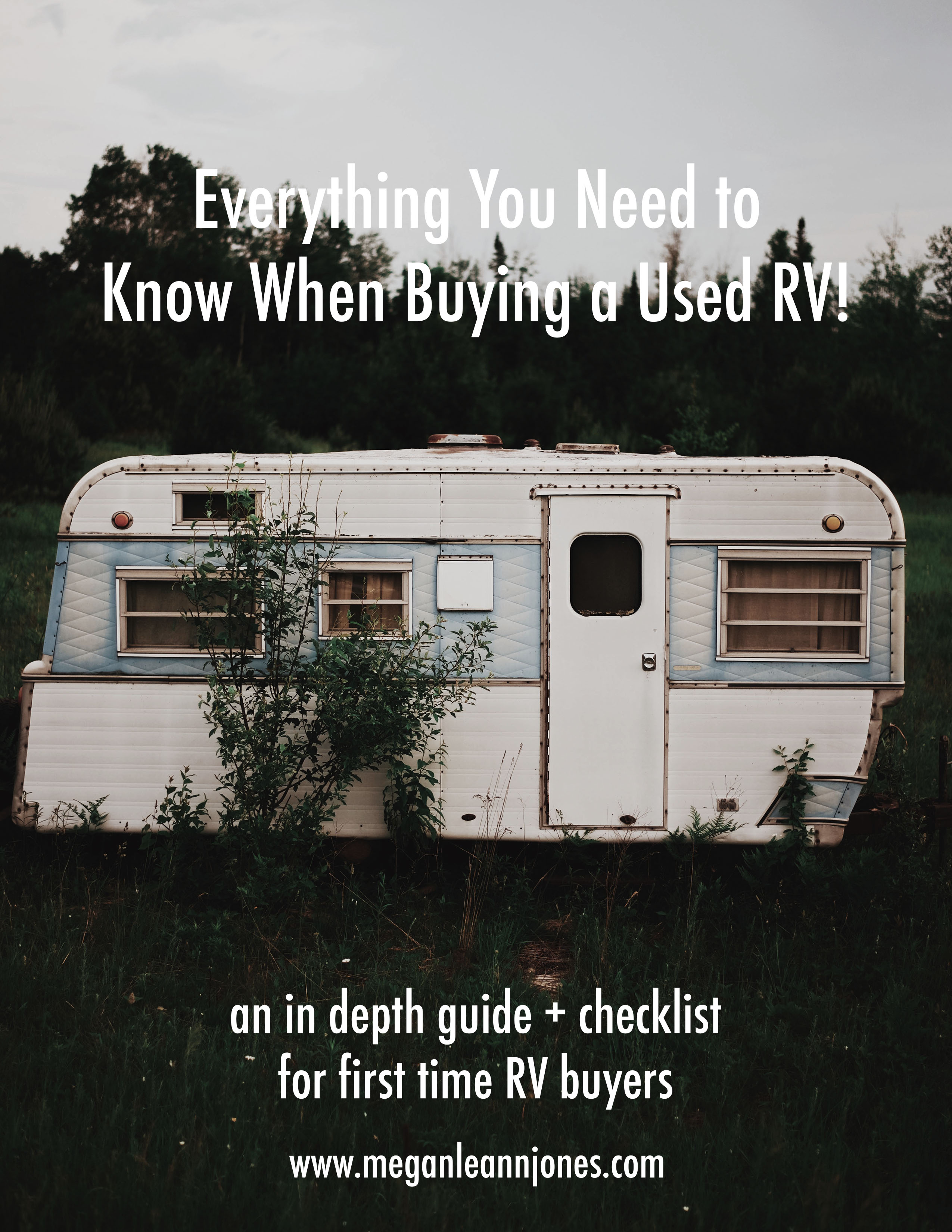
3. RV Parks and Loans can cost as much as a house.
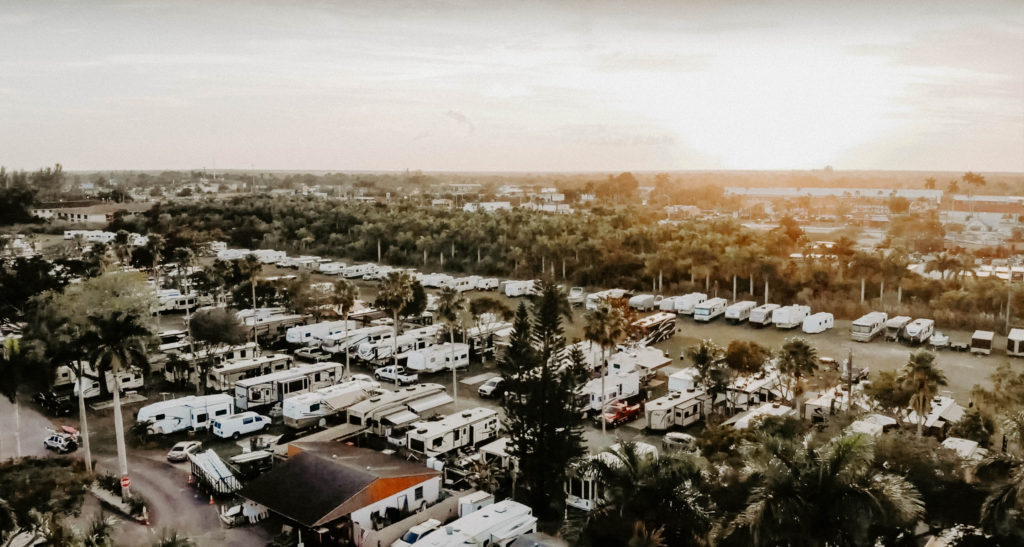
One thing I wish I’d known before living in an RV is that RV park fees can cost as much—or even more—than traditional rent. While RV living is often marketed as a budget-friendly alternative, the reality varies depending on your location, lifestyle, and travel habits.
For those living in high-cost areas like California, where rent and the cost of living are sky-high, living in an RV can actually save money. For us, it works because my husband’s film jobs often cover our RV site fees, as producers typically pay for accommodations. This makes RV living a cost-effective choice for us.
However, that’s not the case for everyone. Many full-time RVers find that between RV park fees, travel expenses, and maintenance, the cost of RV living can rival or even exceed living in a house.
Another major factor to consider is whether you’ll need to take out a loan to purchase your RV. We were fortunate to buy our motorhome outright with cash, and we highly recommend doing the same if you can. Combining loan payments with RV park fees could make the costs very similar to monthly rent.
Before jumping into RV life, make sure to do your research. While it can be a fantastic adventure, don’t assume it will automatically be cheaper than renting. Planning and budgeting are key to making RV living work for your lifestyle and finances.
4. Things are constantly breaking and needing to be repaired.
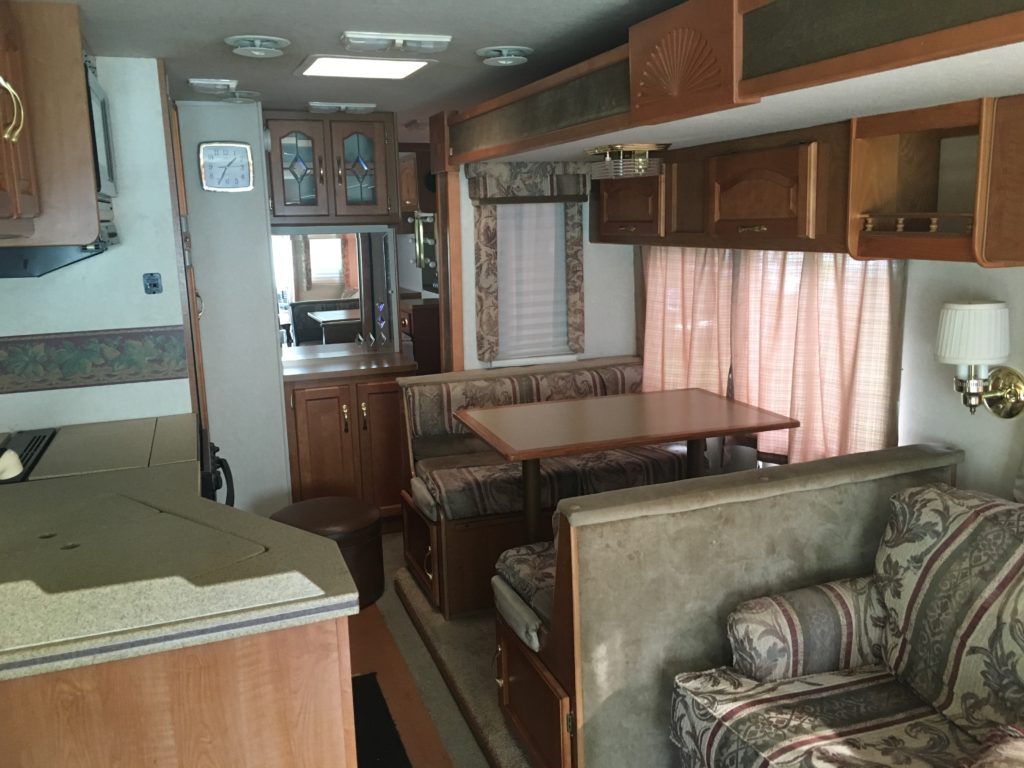
When we first inspected our RV, everything seemed to work perfectly. We conducted a thorough walk-through before buying it, checking all the systems. But here’s the truth about RV living: over time, things will break. RVs aren’t typically designed for full-time living, which means seals wear out, leaks happen, and repairs are constant.
One of the first issues we dealt with was our generator, which hadn’t worked properly since we bought the RV. It took several days and hundreds of dollars to get it repaired. This is a common experience among full-time RVers, and it can be especially challenging because your RV is your home. Taking it into the shop often means staying in a hotel or with family while repairs are completed.
Thankfully, my husband is handy and can tackle smaller repairs, but major issues still require professional help. Beyond the generator, we’ve dealt with broken leveling jacks, a finicky hot water heater, and a slide that rarely closes all the way. Other RVers we know have faced even more serious problems, like black water tank failures, severe water damage, and engine breakdowns—repairs that can be incredibly costly.
If you’re considering full-time RV living, be prepared for ongoing maintenance and unexpected repairs. Regular inspections, a flexible budget for fixes, and DIY skills can make all the difference in keeping your home on wheels road-ready!
New to RV Life? Click the link below to see our list of RV Must Haves on Amazon!
Click Here to Go to my Amazon Storefront
5. RV Parks Aren’t Always What They Seem
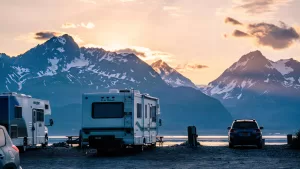
Even with good reviews or a glowing website, RV parks can still fall short of expectations, and it’s often not until you arrive that you find out.
- Overcrowding: Some RV parks pack in as many vehicles as possible to maximize profit, which means you could end up in a tight spot with little room for privacy. Your neighbors might be close enough that you can hear everything they do. If you’re seeking peace and quiet, a packed campground might leave you frustrated.
- Noise: Some parks, especially those near tourist attractions or highway exits, can be quite noisy. The constant hum of traffic or the noise from nearby campgrounds can be disruptive, especially if you’re in a family-friendly park with children running around. Insulation in an RV is almost non existent, we’ve learned you can hear pretty much everything.
- Quality of amenities: Parks often advertise top-notch amenities like Wi-Fi, laundry facilities, or pools, but in reality, these may be outdated, poorly maintained, or not working at all. Wi-Fi could be spotty, and laundry rooms could be crowded and filthy. Researching reviews can give you a better idea of the park’s true condition, but sometimes it’s still a gamble.
We had a few not so great experiences with RV parks (such as the owner of the park walking up to our RV and messing with the sewer hoses while my husband was gone), but don’t let that dissuade you from RV life! You just have to do your due diligence when searching for where to stay.
6. Towing Can Be Tricky
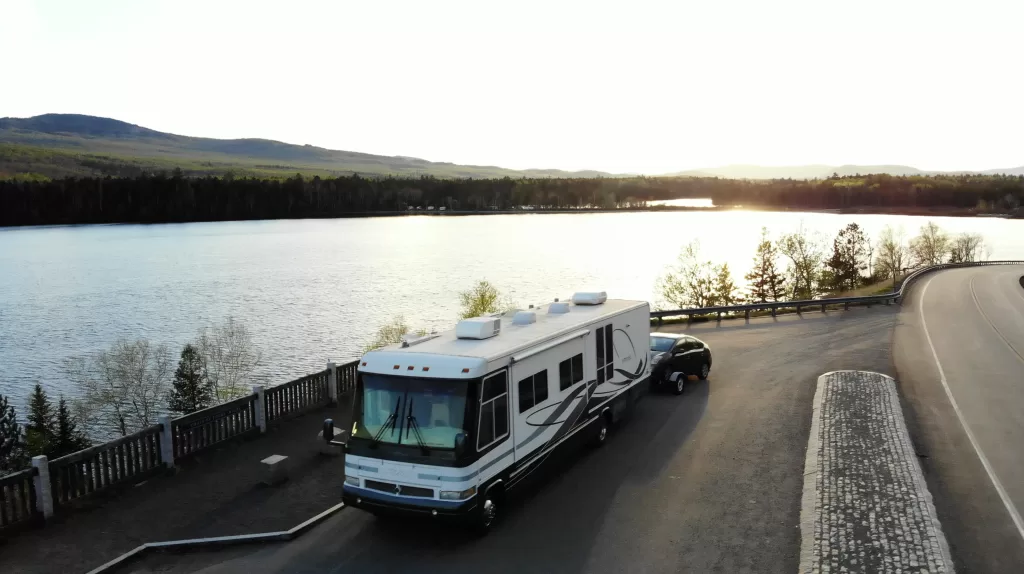
When towing a vehicle or trailer with your RV, the experience becomes much more complex than just driving a regular vehicle.
- Maneuvering: Backing up with a towable RV (such as a fifth wheel or travel trailer) is a skill that requires practice. The turning radius is different than what you’re used to, and small parking spaces or tight campsites can make it hard to get into position.
- Towing weight: It’s important to understand your RV’s towing capacity and make sure your tow vehicle is equipped to handle the weight. If the trailer is too heavy, it can strain your vehicle, decrease fuel efficiency, and make driving unsafe. Overloading also affects the trailer’s stability, especially in windy conditions.
- Hitching and un-hitching: If you have a travel trailer or fifth wheel, the process of hitching the RV and securing it for travel can take time and require extra care. It’s easy to forget a step (like not fully locking the hitch), which could cause problems down the road. Similarly, un-hitching in a cramped space can be a challenge if you’re not experienced.
If you don’t have a lot of experience with towing, we would recommend getting lots of practice reps in with hitching it up, driving it around locally, and backing it into a specific spot before you hit the road!
7. We have to grocery shop more often.
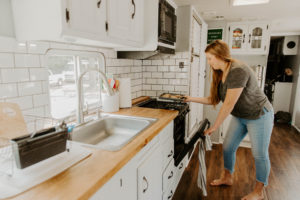
Living full-time in an RV means adapting to smaller spaces, including the kitchen—and one of the biggest adjustments is grocery shopping for a tiny fridge. Our RV fridge is actually larger than most, but it’s still much smaller than a standard household refrigerator, which means we need to shop more frequently and be intentional about what we buy.
Surprisingly, this can actually be a positive! Having limited fridge space prevents us from overbuying or wasting food, saving us money and helping us stick to healthier meal plans. Since there’s no room for unnecessary extras, we focus on only purchasing what we truly need for our meals.
However, if you have a larger family or more than two people in your RV, managing food storage can become a bigger challenge. You might find yourself making multiple grocery trips each week to keep everything stocked.
We have friends in the RV community who have full-size refrigerators in their rigs, and I have to admit—I’m a little jealous. It sure would be nice to not have to worry about fridge space, but like I said, we’ve actually come to be grateful for it! I’m planning to write a detailed blog post soon about how we grocery shop, meal prep, and maximize our small fridge and freezer space. If that’s something you’d love to read about, let me know in the comments!
8. Energy and Water Management Takes Effort
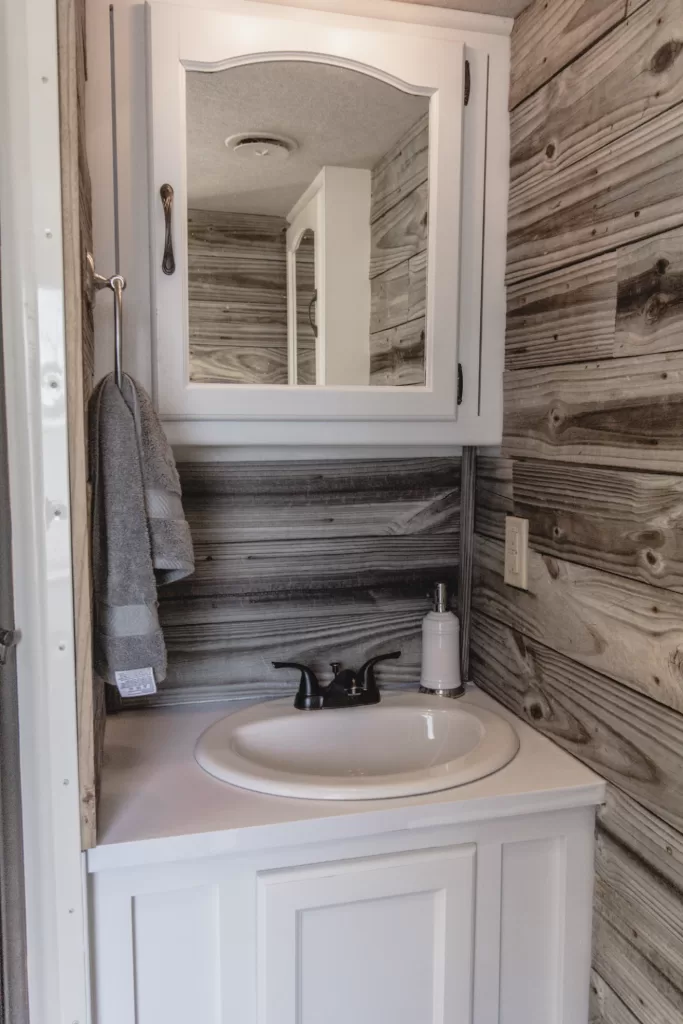
One of the biggest challenges we’ve found when living in an RV, especially when boondocking, is managing your energy and water resources.
- Water: Freshwater tanks in RVs are typically smaller than the average home’s water supply, meaning you’ll need to conserve water more than you’re used to. Showers, dishes, and even washing your hands will require mindful water usage. Many RVers install water-saving showerheads or use campsites with access to fresh water to avoid running out.
- Power: Depending on where you are, electricity might not always be available. RVs generally rely on three power sources: shore power (when hooked up to a park’s electric system), a generator (when you’re off-grid), or solar power. Generators can be noisy and consume fuel quickly, while solar power is more sustainable but requires good weather and sufficient sunlight. Monitoring your battery levels is also important because running out of power can mean your lights, fridge, and air conditioning stop working.
- Boondocking: When camping without hookups, both water and energy management become even more crucial. You’ll need to bring enough water with you, and you’ll have to be careful about how much power you consume, often relying on your solar panels or generator. For long trips in remote areas, many RVers carry extra water and energy storage to avoid running low.
Thankfully most RVs have a built in system to tell how full or empty your tanks are at any given time. They usually have the same thing for power, too, which is really helpful!
9. Weather Can Make or Break Your Experience
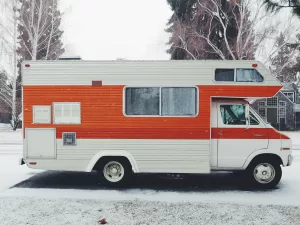
Living in an RV means you’re directly exposed to the elements. Extreme temperatures, rain, snow, or even wind can significantly affect your comfort and safety.
- Cold weather: If you’re in a colder climate, keeping warm inside the RV can be difficult. Many RVs aren’t built to withstand freezing temperatures without additional preparation, such as insulating the undercarriage, sealing gaps, or adding extra heating. Pipes can freeze, and if the RV’s heating system isn’t up to par, you’ll be dealing with some very uncomfortable nights. One winter we were stuck in freezing temps for over a week and really struggled just to keep our pipes warm because they’re exposed directly to the cold air! We then bought a heater for our hose to keep the water from freezing, and that worked super well!
- Hot weather: On the flip side, summer temperatures can make an RV feel like an oven. Air conditioning may be your best friend, but it uses a lot of energy, especially when you’re boondocking (off-grid). Without hookups, you’ll rely on your RV’s generator or solar power to keep cool, which can quickly drain your resources.
- Rain and wind: High winds can be scary, especially when driving or if you’re parked in a less sheltered area. Torrential rain can cause leaks in older RVs, so regular inspections of the roof and seals are crucial. When boondocking, sudden storms can also make the terrain muddy and harder to navigate.
Thankfully, if you live in an RV and are traveling around, you have the luxury of picking your location! So you may not even run into this issue, but it’s definitely important to mention.
10. The less stuff you start off with the better off you’ll be.
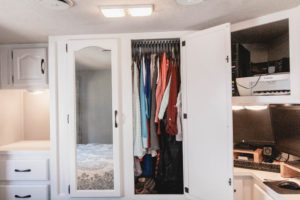
I think this is true for anyone, even if you live in a house, but especially if you’re wanting to live in an RV. We didn’t have a whole lot of stuff when we bought the RV, but we still had too much!
We’ve had to get rid of things and downsize even more since living in the RV just to stay organized. We’ve gotten to the point where we literally only have the things that we absolutely need to live and it’s actually really refreshing! In our 3 years of RV living, we’ve constantly re-organized our stuff and assessed just how much we need, what we haven’t used in the last 6 months, etc.
As someone who’s personally lived in an RV for 3 years, I’ve realized some things you just have to learn along the way. That doesn’t mean the journey isn’t worth it though! Having the flexibility to travel wherever you want is incredibly freeing. While RV Life is an incredible adventure, it also comes with many challenges. From managing energy and water efficiently, to navigating extreme weather and mastering the art of towing, the RV lifestyle requires preparation and adaptability. My hope is that this blog post will help you with understanding what to expect so you can plan ahead! That way you’ll be better equipped to embrace the freedom, flexibility, and unforgettable experiences that full-time RV living has to offer.
Thanks so much for reading!
Megan
Related Posts:
How We Renovated a Travel Trailer on a Budget from Start to Finish
How to Choose the Right RV for your Lifestyle
How We Renovated Our RV Kitchen on a Budget